Crested geckos are interesting pets that need a well-rounded diet to stay healthy.
In their natural habitat, they munch on insects and fruits, but as pets, you should give them a mix of live bugs and specialized crested gecko food.
In this article, I’ll talk about what crested geckos eat naturally and what to feed them when they’re in your care.
Let’s dive in…
- Add small insects like crickets and mealworms, which are full of protein, and add variety to their diet.
- Offer occasional fruit treats like mashed banana, mango, and berries, but don’t overdo it because they contain sugar.
- Make sure they have access to clean water and keep their enclosure humid by misting it regularly to keep them hydrated.
What Crested Geckos Eat in the Wild and Captivity?
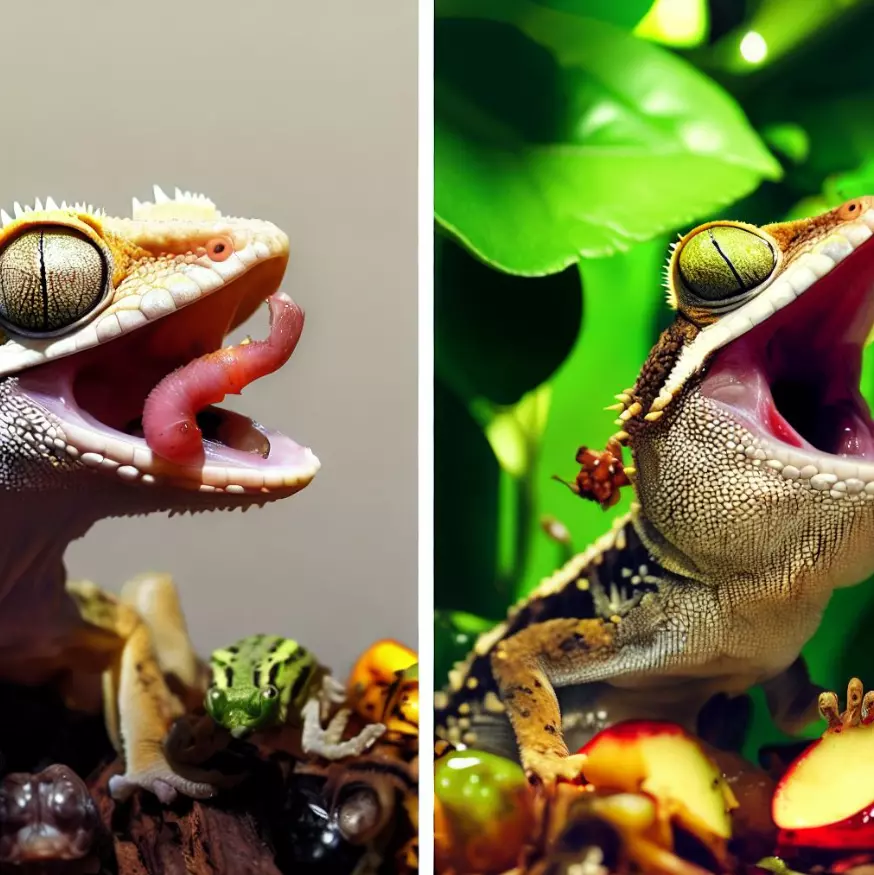
Crested geckos, in their natural homes, eat a mix of bugs, fruits, and nectar. They’re flexible eaters, which means they can get lots of different nutrients from their food.
What they eat can change depending on their age and where they live.
But when crested geckos live with us, we need to make sure they eat the right things to stay healthy.
Their diet should include:
- Insects: Bugs like crickets, grasshoppers, and worms give them the protein they need. To make sure your gecko gets all the good stuff, feed the bugs nutritious food and sprinkle them with calcium and vitamin D3 before offering them to your gecko.
- Fruits: Even though bugs are the main source of protein, you can give fruits as a treat. Good fruits include bananas, mangoes, apricots, papaya, and berries. These fruits have vitamins and minerals but don’t overdo it with treats, especially fruits that aren’t citrusy.
Ready-Made Gecko Food
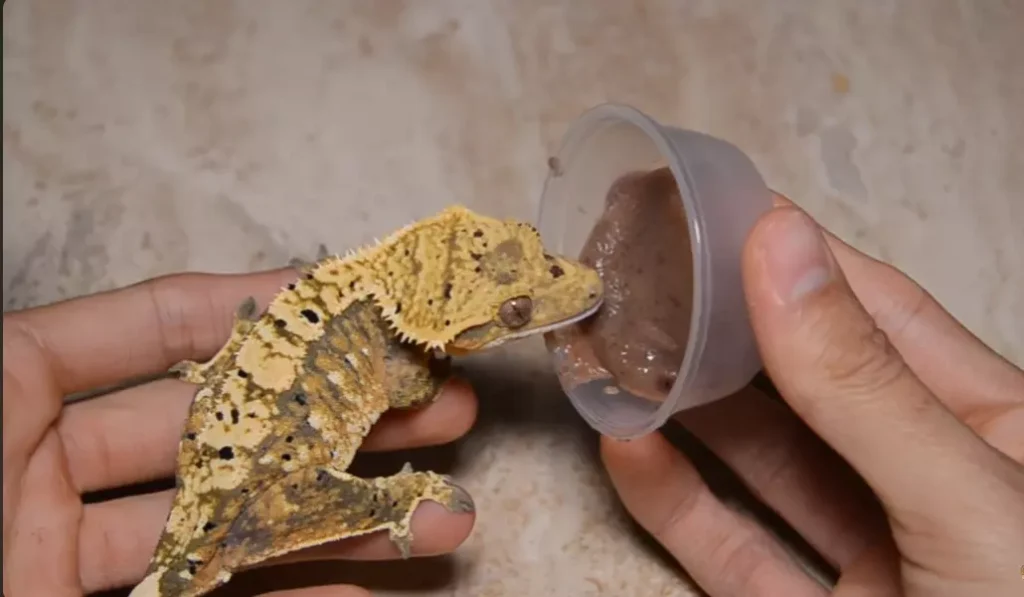
If you’re looking for a hassle-free way to ensure your crested gecko gets all the essential nutrients it needs, you can opt for ready-made gecko food.
These specially formulated diets are designed to provide complete nutrition in a convenient package.
Here’s how it works:
⇒ Easy Preparation: These foods typically come in powdered form. All you need to do is mix the powder with water to create a paste. It’s a straightforward process that doesn’t require any special cooking or complicated steps.
⇒ Nutrient-Rich: These gecko diets are carefully crafted to contain all the vital nutrients your crested gecko requires for optimal health. They are formulated with a balanced mix of proteins, vitamins, minerals, and other essential components.
Tip: If you’re unsure about which brands to choose, consider reputable options like Repashy, Pangea, and Zoo Med. These brands have established a strong track record for producing dependable and nutritious gecko food products.
When and How Much to Feed
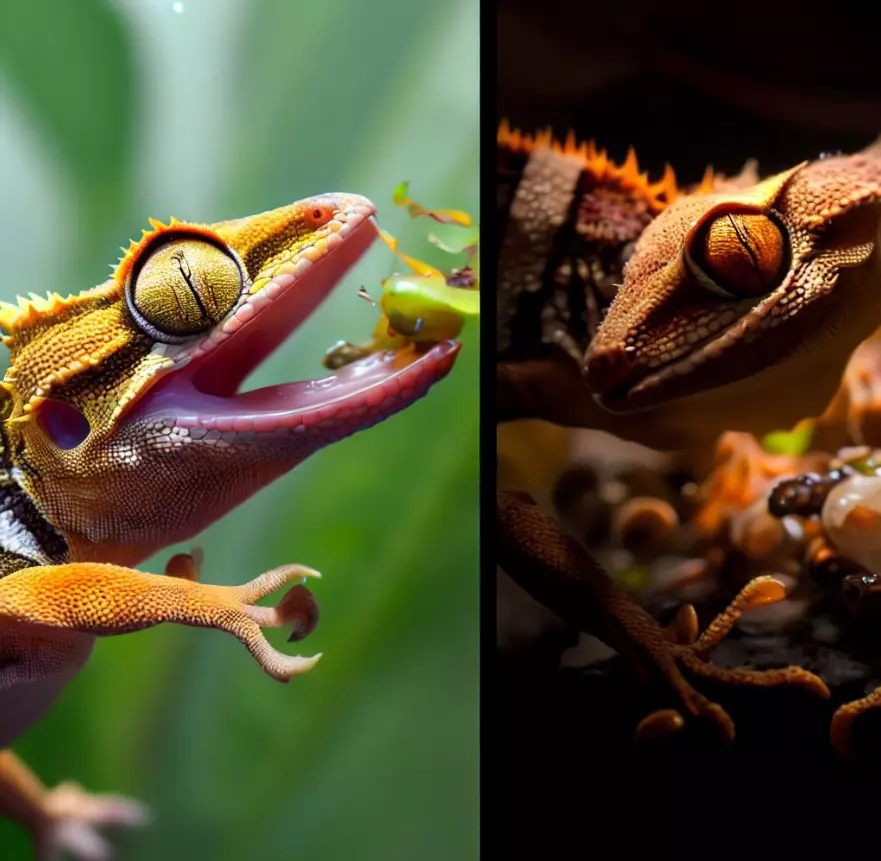
To make sure your crested gecko stays healthy, create a feeding schedule based on their age and health.
Young geckos might need food every day, while grown-ups can eat every other day or even every third day.
Watch their weight and what they like to eat, and adjust their diet as needed.
Here’s a feeding schedule for Crested Gecko:
| Age | Feeding Schedule |
|---|---|
| Hatchlings (0-4 months) | Feed daily with a mix of crested gecko diet and insects such as crickets and waxworms. |
| Juveniles (4-12 months) | Feed every other day with a mix of crested gecko diet and insects such as crickets and waxworms. |
| Adults (12+ months) | Feed 2-3 times a week with crested gecko diet. Insects such as crickets and waxworms can be given once or twice a week as a treat. |
Note that the feeding schedule may vary depending on your gecko’s health and appetite. Also, remember to dust the insects with calcium and vitamin D3 powder before feeding to ensure proper nutrition.
Keeping Them Hydrated
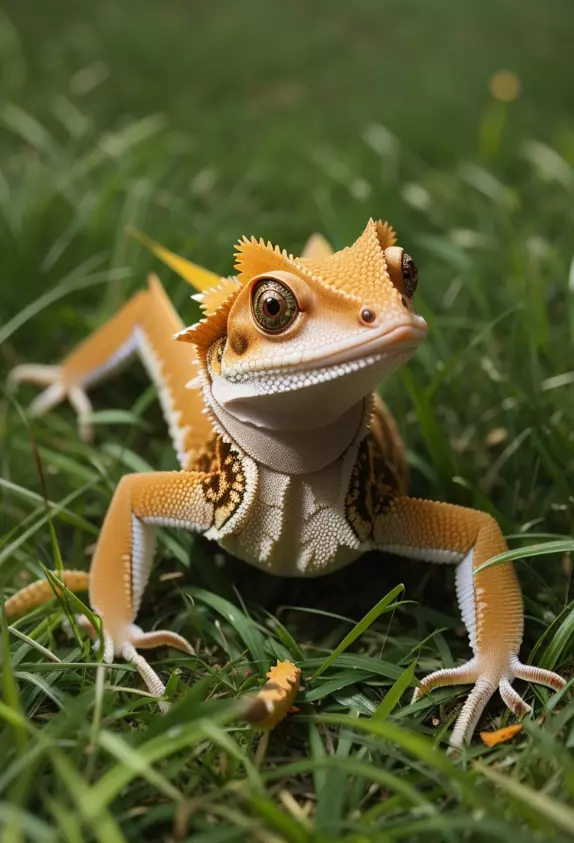
Crested geckos need water to stay healthy, and there are a couple of important ways to make sure they stay hydrated.
First off, Crested geckos come from humid environments, so it’s crucial to keep their enclosure adequately humid.
You can achieve this by regularly spraying the enclosure with water. This helps recreate the moisture they are used to in the wild, making them feel more comfortable and hydrated.
In addition to maintaining humidity, always provide a separate source of clean, fresh water for your gecko.
Even though they can get some moisture from the air and their food, having a water dish or container accessible ensures they can drink when they need to.
F.A.Q.s
Q: What is a natural diet for crested geckos?
A natural diet for crested geckos typically includes insects like crickets and worms, as well as a variety of fruits such as bananas, mangoes, and berries.
They may also consume nectar in the wild.
Q: Can I feed my crested gecko only commercial gecko food?
While commercial gecko diets provide balanced nutrition, it’s best to offer a combination of commercial food, insects, and fruits to mimic their natural diet for optimal health.
Q: How often should I feed my crested gecko?
Feeding frequency depends on their age.
Young geckos may require daily feedings, while adults can be fed every other day or every third day.
Adjust their diet based on their growth and weight.
Q: Do crested geckos need supplements?
Yes, they do.
Dust live insects with calcium and vitamin D3 supplements before offering them to your gecko.
These supplements ensure they receive essential nutrients for bone health.
Q: Can I give my crested gecko any fruits, or are some fruits harmful?
Avoid citrus fruits, as they can be harmful to crested geckos.
Stick to safe fruits like bananas, mangoes, apricots, papaya, and berries in moderation.

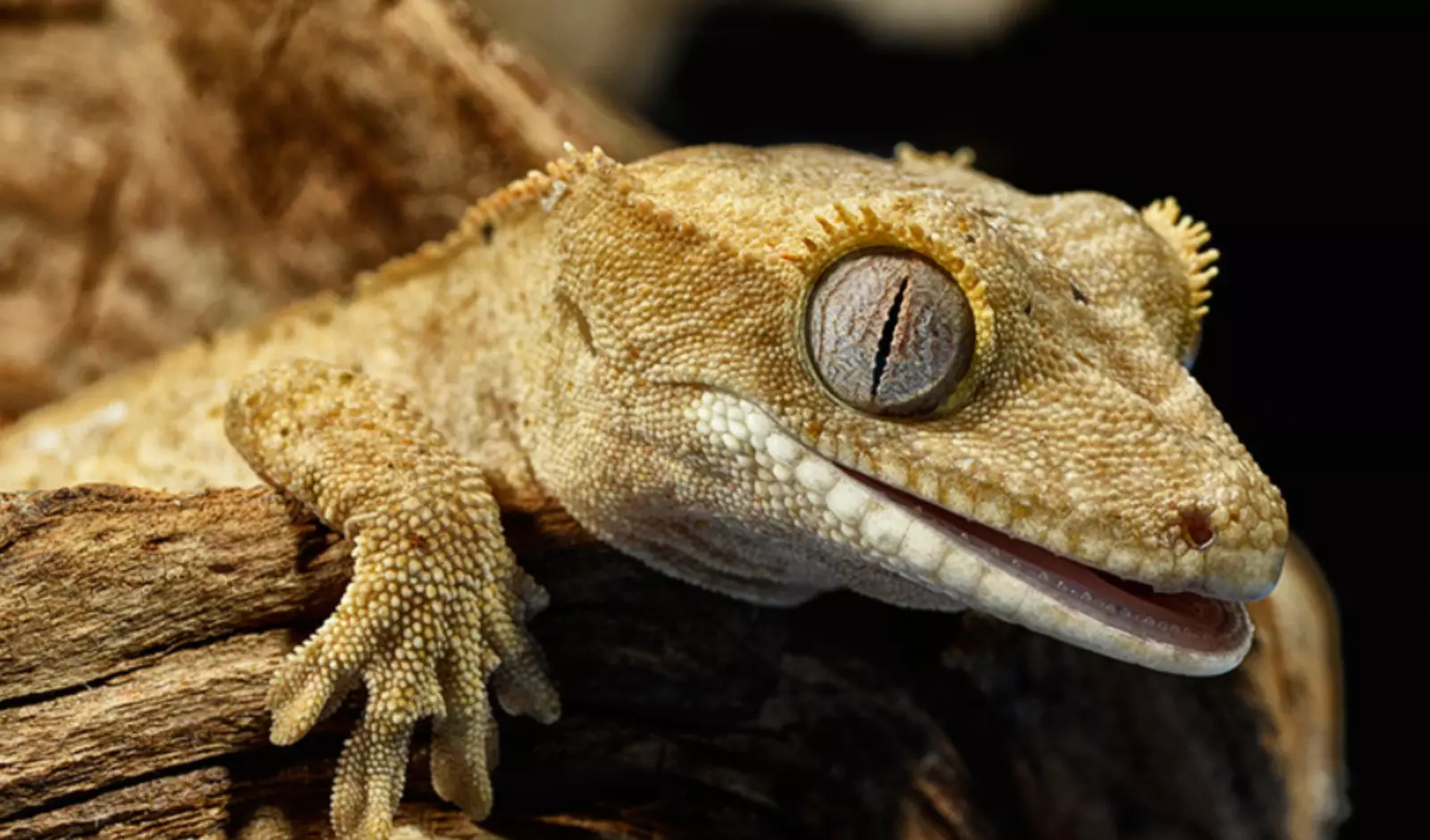
[…] I highly suggest reading that article to learn how to feed your crested gecko properly. […]
[…] Is your gecko healthy? […]
[…] a Balanced Diet: Feed them a diet of commercially prepared crested gecko food supplemented with live […]